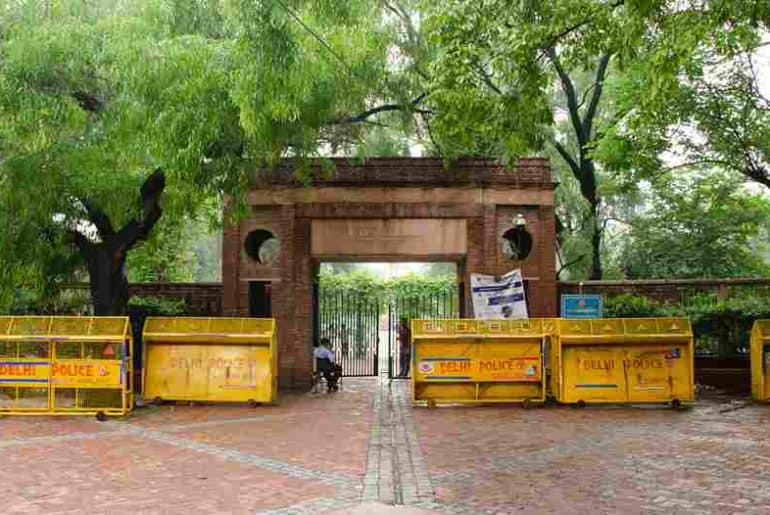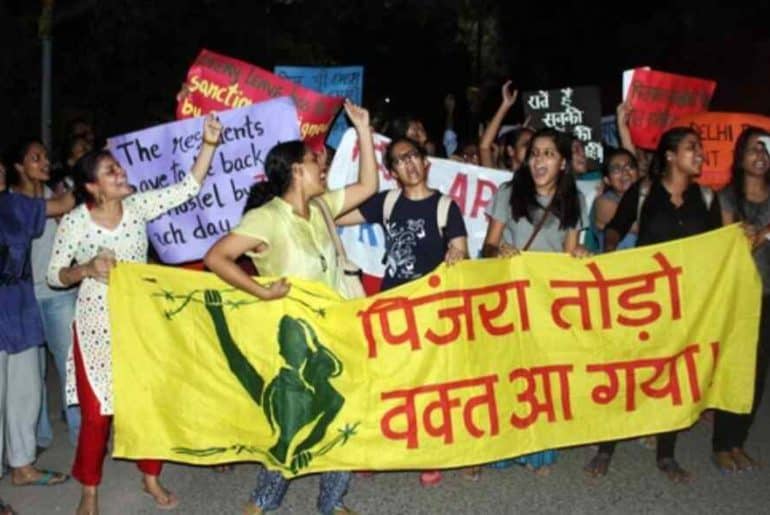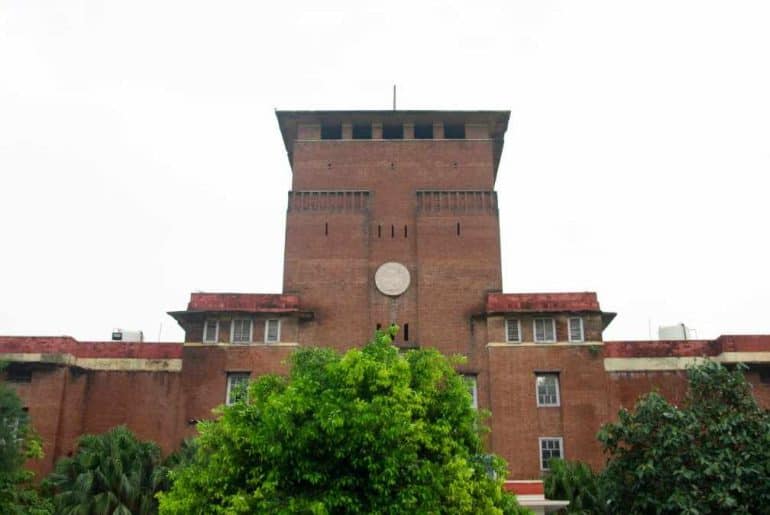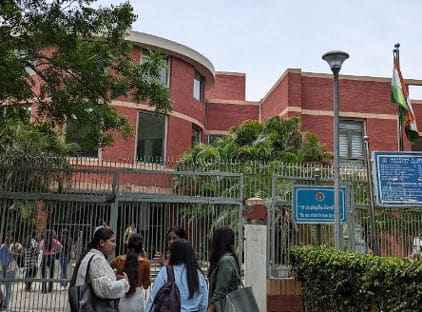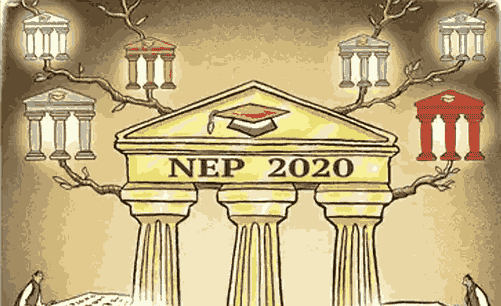We spoke to Sneha Aggarwal, a recent graduate from Ramjas College, who is currently a student at Law Faculty, DU. Aggarwal is the candidate of the left-wing alliance between AISA and SFI. She is an SFI member.
Interview took place on September 18, 2024
Question: What motivated you to run for the position, knowing the degree of money-muscle politics?
Sneha Aggarwal: Everyone has to face this, those who have any ideological bearings. Money and muscle power have always been a part of student politics but as DU deteriorates and students don’t have any alternatives other than ABVP and NSUI – it shows the need for someone to step up. Being a part of SFI has shown me that you need to be present.
Question: How do you plan on keeping students informed about the union, and taking feedback?
Sneha Aggarwal: SFI has always managed to do so with its mass presence and membership with units across 20 colleges. We also don’t use ideology as a filter for members. Our social media presence, and GBMs or general boarding meetings across colleges is how we communicate.
Question: What is the biggest challenge students are facing?
Sneha Aggarwal: There are several: fee hike, [lack of] hostel facilities, women’s safety – Union is not representing students’ issues. DU is a central university and a public school, it must continue to financially alleviate those who cannot afford to do so themselves, DU cannot just be for day-scholar students and the financially privileged
Question: How will you measure the success of your manifesto’s initiatives, if elected?
Sneha Aggarwal: If elected, we have a formal platform to put pressure on and communicate with the administration as seen from JNU where we got hostels made and metro paths created
Question: Why did you decide to create an alliance [with AISA] this time?
Sneha Aggarwal: We saw a similar model of left unity being followed in JNU as well, given the need to contest the right-wing influence. The same process is underway in DU – the ABVP has risen because members of the Sangh have entered the administration due to the government’s favour, even the faculty has been affected – SFI and AISA have lean to the left, we have a shared ideology, shared goals, and more importantly – a need to counter muscle and money.
Question: NSUI also has a parent national party, the Congress which recently formed the INDIA alliance. Why was the national model of alliance-making not enacted at the university-level?
Sneha Aggarwal: NSUI is already in the union so it has already had an opportunity to represent, which has been inadequate. The use of caste politics or muscle power isn’t just limited to the ABVP, NSUI too is becoming similar. We cannot ally with someone simply on the basis of their national party.
Question: How do you strive to ensure that the students’ demands for hostels are fulfilled without conflict?
Sneha Aggarwal: Being in the Union gives formal channels of communication as well as the ability to put pressure [granted student legitimacy]. We intend on pointing out that there is space for expensive student centres and Nescafe kiosks but not for hostels. There is a need to better utilise space and resources. Like the promise of university special buses is only mentioned during elections, citing that there was an unused COVID fund, misuse of money should not happen, there should be a common student union fund.
Question: How does SFI plan to make campus more inclusive for all marginalised groups?
Sneha Aggarwal: There are already many SC/ST cells, WDC, queer cells in DU but the issue is functioning. In my alma mater itself, the SC/ST cells were headed by professors who’d make distinctions according to class. Only Miranda’s [College] queer cell is officially recognised. The Union must get these cells recognised and function effectively. Even with the functioning of CASH committees and ICC, they’re responsible for more than just complaints and cases but also effective sensitisation of the student body towards the issue.
Question: Why is your stance anti-FYUP and what alternatives do you propose?
Sneha Aggarwal: There are many issues with the implementation of NEP and the four-year programme – they’re imposing the American which only caters to a few who can afford higher education abroad so why four years? Eventually, they’re trying to make it almost compulsory[B.A. programme requirement to qualify for an Honours degree] yet there are multiple entry and exit – this is simply education commercialised. UGC scrapped education loans and moved towards privatisation as seen with Hindu’s College, where hostels have been leased out to private contractors. We suggest a survey across the country and especially DU, to see which students are dropping out the most and then implement, in order to encourage these communities to finish their degrees. There is also the SFI policy of NEP 2.0.
Question: Parties like ASA and Fraternity all support identity politics yet they do it as a means of representation and criticise left for fielding mostly upper class candidates, how do we make a choice?
Sneha Aggarwal: Many of our left leaders themselves are from marginalised groups – this time there’s many women on the panel from varying backgrounds. But on the matter of identity, there are many such who do contest. Left believes in overall emancipation, not just that of a singular identity.
Question: Was there an attempt to ally with these parties like in JNU?
Sneha Aggarwal: We don’t believe in this, this is not our politics. In JNU, there was a need for the SFI-BAPSA alliance given the right-wing turn.
Question: Is the alliance anti-ABVP or ideologically driven?
Sneha Aggarwal: We are driven by our goals — for the students’ needs to be fulfilled, that is our common ground. Our functioning remains different.
Question: The Left is criticised for themselves being hypocritical with their stances, particularly when it comes to internal misogyny? How will you fight these forces?
Sneha Aggarwal: Simply being a communist doesn’t erase patriarchy, given the way society functions and shapes us. This is reality, simply to “de-class” oneself isn’t enough but must also sensitise oneself. If we make it to the Union, we can only try to self-correct through [constructive] measures but not by boycotting or “cancelling”. The aim is to support growth.
Read Also: Interview with Dr. Abha Dev Habib
Image credits: DUB Archive
Interviewed by Bhavana and Vedant

